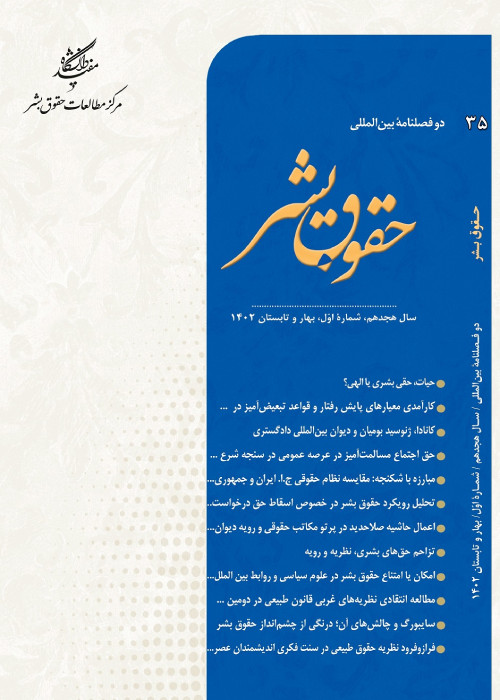Towards a Culture of Human Rights: World Religions and National Accountability
The recent creation of the Human Rights Council at the United Nations constituted another opportunity for the United States to take positive leadership towards a greater level of human rights implementation. This opportunity for significant and timely paradigm shift has passed with too little fanfare. The US refusal to run for election to the HRC, while not a crippling blow, does deprive it of the influence of the most powerful nation in the world. The US’ ability and willingness to evade scrutiny of its human rights record is an important symbolic setback for human rights progress. This most recent disappointing performance leaves a leadership vacuum which other less powerful nation-states are unlikely to fill. Are nation-states willing to or capable of generating a shift towards more complete fulfillment of global human rights? If not, what other actors might take a “prime mover” role? Market forces are hugely important and dynamic actors, both globally and locally. Businesses considered as a whole are immensely powerful in the lives of ordinary people and in global scope and influence. However they don’t consistently act for the benefit of human rights at a global level because of their great heterogeneity, their motives, and their origins. Economic institutions that interact directly with global markets are primarily concerned with nation-states development and trade policies. These bodies pressure some nation-states to improve their human rights records. However, the current major bodies depend on nation-states to enforce their rulings or provide their funding. Furthermore their influence is reduced vis-à-vis more powerful nation-states, and their direct interaction with local communities is limited. The help and participation of the international business community is vital, but cannot be relied upon as the catalyst for a paradigm shift in human rights implementation. Religious institutions are uniquely situated to influence human rights implementation because of the function they perform – describing right and wrong conduct, the way things are and the way they should be. The sheer numbers of people in the major world religions gives them potential to influence global human rights. Religions engage in intensely localized action which is crucial for tangible human rights work. They also possess a guiding structure which is necessary to achieve more equitable distribution of rights for all. People are capable of influencing their surroundings, and religious belief structures can help to synchronize their efforts for change in a positive way. It is therefore necessary to describe and analyze how effective religious institutions might be in achieving increased human rights implementation. Significant hurdles include at least current and past violent conflicts between people of different faiths, clashing belief structures, intolerance and extremism within religious groups, and the problem of influencing a diverse group of believers to perform any distinct action as a whole. Unfortunately, religions have historically generated a great deal of human suffering, as well as advances in human rights. One way for religious institutions to influence a shift to greater human rights implementation is in acting as an organized moral restraint for governments. This paper will attempt to identify areas in which the major religions have commonalities which are promising for joint human rights actions. Additionally, it will include a focus on methods which religious groups have used to influence their governments for the purpose of bringing about positive change.
- حق عضویت دریافتی صرف حمایت از نشریات عضو و نگهداری، تکمیل و توسعه مگیران میشود.
- پرداخت حق اشتراک و دانلود مقالات اجازه بازنشر آن در سایر رسانههای چاپی و دیجیتال را به کاربر نمیدهد.


